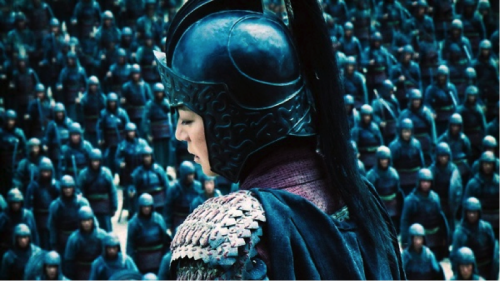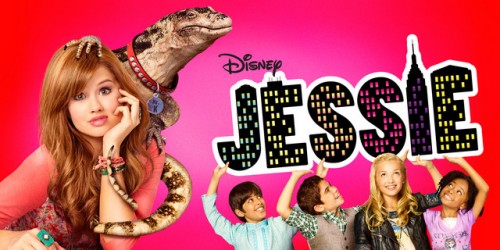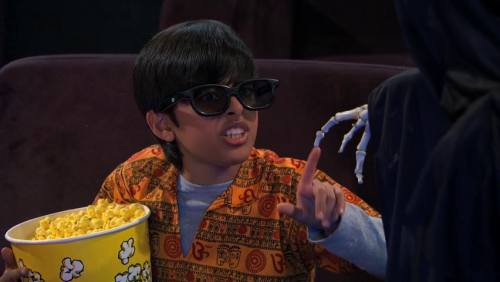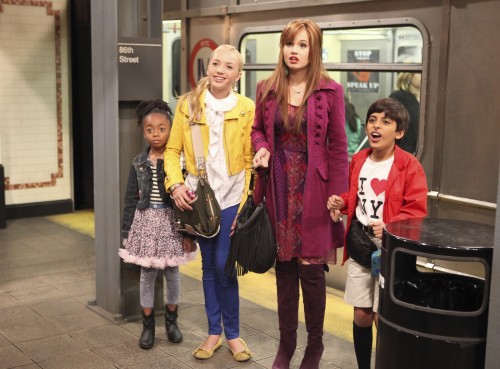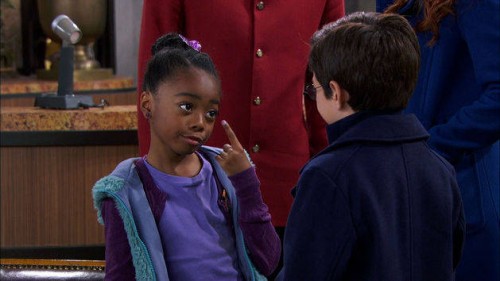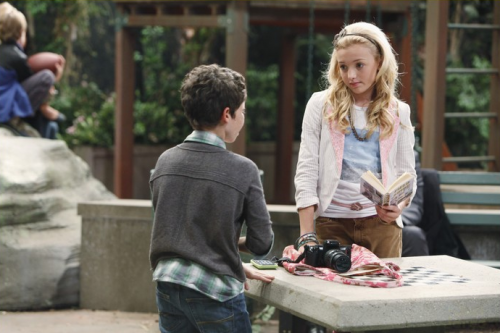This is a guest post by Latonya Pennington.
Warning: Spoilers ahead!
Mulan was one of the first female Asian characters I looked up to. I first saw the film as an eight year old in the 2nd grade as part of a school assignment unit involving Asian culture. As a young black and Asian girl, seeing a strong female character like Mulan was the coolest thing ever, especially since I didn’t see too many female Asian characters in U.S. media yet.
A few weeks ago, I watched Mulan again with a mind enriched by cultural theories learned in a Media and Culture college course I took a couple years ago. This time, my opinion of Mulan was much different than the one I had at eight years old. Mulan and the other characters reeked of Orientalism, depictions based on what the United States thought Asian culture and people were like rather than what they were really like.
Out of curiosity, I looked up feminist critiques of the film that discussed the Orientalism and discovered the Chinese film Mulan: Rise of a Warrior. While watching the film with English subtitles, I saw stark and mostly positive differences between this film and its Disney counterpart.
One of the best differences is the story’s plot. While there are similarities between the Disney version and this film, an important difference is that Mulan (Zhei Wei in a fantastic performance) doesn’t just disguise herself as a boy and take her father’s place in the army as a soldier. She also rises through the ranks and becomes an inspirational warrior after much loss and hardship.
Another positive difference is Mulan herself. In the film, she is given agency as a female before and after she takes her father’s place in the army as a male. A flashback scene that takes place just before Mulan heads out to join the army shows her using kung-fu as a young girl to defend her childhood friend Tiger (Jaycee Chan). Toward the end of the film, Mulan defeats Mendu (Hu Jun), the film’s main villain, while disguised as a female member of the Rouran, the tribe of the opposing army.
In addition to Mulan, the Rouran princess (Liu Yuxin) is another character worth mentioning. She doesn’t have many scenes, but she helps Mulan defeat Mendu by tricking him into lowering his guard. At the end of the film, she marries the prince of the Wei dynasty in an arranged marriage to ensure peace between the warring factions. When put side-by-side with Mulan’s actions, she shows that Asian women can balance traditional values and the ideal of the strong woman.
Unlike in the Disney film, this version of Mulan shows that women don’t have to “be a man” in order to be powerful. On the other hand, Mulan’s father (Hua Hu) attempts to restrict Mulan to the traditional role of Asian women, a role that would have made Mulan meek and submissive. In one of his first scenes, he says to an old man, “Why did you teach her kung fu? She’s a girl! Who will marry her?”
At the end of the film Mulan returns home as a general, but Hua Hu still defines Mulan’s new role in terms of her gender. When Prince Wentai (Chen Kun) comes to visit him and Mulan, Hua Hu says, “It’s nice to have a daughter always filial, understanding, and obedient. And now, she’s a pretty general!” While calling Mulan pretty seems harmless, it draws attention to the fact that she is a female general.
When you consider the time period that the film takes place in, the novelty of Mulan being a female general is understandable. However, this is no excuse for the gendered implications of Hua Hu’s praise. If Hua Hu had said that Mulan was a great general, then it would have shown that Mulan could be valued as a general regardless of her gender.
Despite the sexism of Hua Hu, his character also serves a positive purpose. Mulan’s love for her father and his physical and spiritual presence shows that the Asian cultural value of family can be balanced with the ideal of a strong woman. While this is demonstrated throughout the film, this is best seen in the last few scenes of the film.
At this point, Mulan returns home to her father almost exactly like she does in the Disney version. When it comes to the Disney version, some feminists have criticized this because it seems like Mulan returned to the meek submissive role she had at the beginning of the film. However, Mulan: Rise of a Warrior shows otherwise.
Mulan returns home to care for her father after refusing the solo position of commander of the Wei army. Yet, she is not the same person she was before. She has become stronger by learning that sometimes the needs of many outweigh the needs of a few and to stay true to her roots.
If the character Hua Hu implies that Asian women can only be respected in traditional roles, the characters Tiger and Wentai, show that women can be respected as women in any role they have. In this case, Tiger and Wentai respect Mulan as a woman and a warrior and play key roles in helping Mulan grow as a warrior. Until the end of the film, they are the only male characters that know Mulan is a woman besides Mulan’s father.
When Mulan first arrives to the army, Tiger discovers Mulan’s plan to take her father’s place as a man. However, he agrees to keep her real gender secret and helps her adjust to life in the army.
Meanwhile, Prince Wentai joins the army undercover as a sub-commander and discovers Mulan’s secret after she accidently runs into him at a hot spring. Wentai doesn’t recognize who she is, but an incident with the army bully forces Mulan to tell Wentai the truth and he agrees to keep her secret.
When the original commander is killed in a surprise attack by the Rouran, Mulan is made a sub-commander alongside Wentai after performing well in battle. Once this happens, Mulan and Wentai become closer. It is not explicitly stated that the two have romantic feelings for each other until the end of the film, but this allows their feelings to be shown to the viewer in a way that is very poignant.
Wentai cares for Mulan and her potential as a warrior so much that he is willing to fake his own death so that Mulan can learn to grow without him. At this point, Mulan’s feelings for Wentai have gotten in the way of her responsibilities as sub commander. She has also become weary of the bloodshed and personal loss of her comrades. After Wentai’s “death” causes Mulan to numb herself with alcohol, Tiger steps in and gives her some tough love.
“Are you living for the dead or for the living? You are no longer the Sister Mulan I adored!” he says. Tiger’s words enable Mulan to regain her fighting spirit and give a rousing speech that fully exposes her fear to the troops while showing her newfound strength. Mulan and the troops resolve to become stronger to protect each other and prevent further personal losses.
It then is revealed that Tiger was told by Wentai to tell Mulan he had died on the battlefield. By the time Mulan discovers Wentai is alive, she is a fully-realized general who has decided battle plans, stood up to Mendu before the great battle between their troops, and led her troops in that battle.
At the end of the film, Wentai tells Mulan he loves her even though he is supposed to marry the princess of the Rouran tribe. At first, he suggests that he and Mulan run away together, but Mulan tells him the marriage must occur so there will be no more bloodshed and loss. Wentai respects her decision, and the two share one last embrace before Wentai leaves.
Unlike its Disney counterpart, Mulan: Rise of a Warrior shows a powerful and dignified view of Asian women and traditional values. Through Mulan, the viewer discovers what it means to be a warrior and a woman. Mulan shows that you don’t have to separate the woman from the warrior. Watching her grow as both is raw and beautiful.
Latonya Pennington is a freelance writer who writes to geek out, promote, and encourage discussion. She has written for Black Girl Nerds, AfroPunk, and Atlanta Blackstar.
